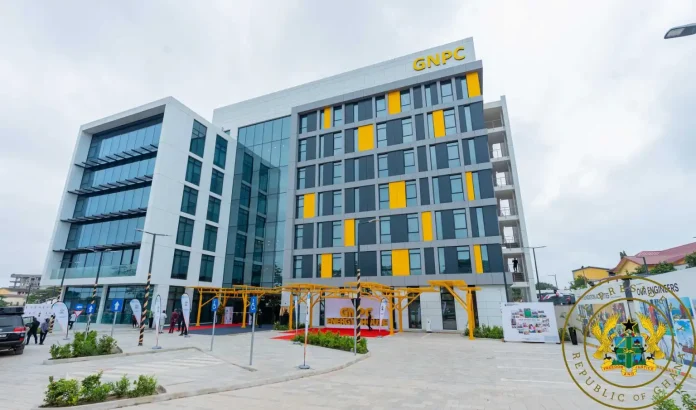The Ghana National Petroleum Corporation has declared a fundamental shift in how it approaches local content, promising to transform what many businesses see as a box-ticking exercise into a strategic engine for indigenous business growth and national development.
Speaking at the Corporation’s first-ever Vendor Engagement Seminar, held as part of GNPC’s 40th anniversary celebrations, Chief Executive Officer Kwame Ntow Amoah emphasized that the new commitment to local content extends far beyond regulatory compliance. “Local Content is not merely a regulatory requirement. It is central to our strategy to grow together with local enterprises in a mutually beneficial partnership, ensuring our nation’s resources create real opportunities for our people, businesses, and communities,” he said.
The event, themed “Promoting Local Content and Local Participation through Vendor Engagement,” brought together Ghanaian businesses, suppliers, and vendors to strengthen partnerships within the Corporation’s supply chain. For many local firms, this represents long-awaited greater access to procurement and contracting processes that have historically felt opaque and difficult to navigate.
What makes this announcement particularly significant is the timing. GNPC is moving beyond offshore operations to explore the Voltaian Basin, Ghana’s inland petroleum province. This expansion presents what Amoah described as a unique opportunity to bring control of Ghana’s oil and gas value chain increasingly into Ghanaian hands.
“Through the work that we are doing offshore, and now we are going into the inland basin, we hope to steadily bring control back to Ghanaians,” the CEO explained. “The opportunities exist in both our fields, offshore and the Voltaian Basin, and we expect that this will provide a new space for indigenous companies to play an active role.”
The Voltaian Basin represents a relatively unexplored frontier for Ghana’s petroleum industry. Unlike the mature offshore fields that have been producing for years, this inland basin offers a fresh start where local participation can be embedded from the ground up rather than retrofitted into existing operations dominated by international companies.
GNPC’s vision is to create a value chain that embeds local enterprises, including vendors, suppliers, and affiliates, seamlessly into the Corporation’s operations. The goal is driving homegrown expertise, innovation, and competitiveness rather than simply meeting minimum local content percentages.
This renewed commitment aligns with Ghana’s broader local content policy framework, which seeks to ensure that the country’s oil and gas wealth translates into jobs, business opportunities, and technology transfer for citizens. However, implementation of local content policies has often fallen short of aspirations, with many Ghanaian businesses complaining about limited real opportunities despite the regulations on paper.
The cynicism stems from years of watching local content requirements become compliance exercises where international companies partner with Ghanaian fronts who provide little actual value. Or situations where local businesses win contracts but lack the capacity to deliver, reinforcing stereotypes about indigenous companies’ capabilities.
GNPC’s approach appears designed to address these concerns head-on. By offering capacity-building programs, transparent bidding opportunities, and collaborative frameworks, the Corporation hopes to position Ghanaian firms as long-term players rather than token participants.
The emphasis on transparency is particularly noteworthy. Procurement processes in Ghana’s public sector have long been criticized for lacking clarity, with businesses often uncertain about requirements, timelines, or evaluation criteria. If GNPC can demonstrate genuinely open and predictable procurement, it could set standards for other state entities.
Capacity building matters just as much as access. Many Ghanaian businesses have ambitions to participate in the oil and gas sector but lack the technical knowledge, financial resources, or operational experience to compete effectively. Without support to close these gaps, opening doors achieves little if local firms can’t walk through them successfully.
The vendor engagement seminar itself represents a step toward addressing information asymmetries. By bringing together businesses and GNPC officials, the event created space for dialogue about expectations, requirements, and opportunities. This kind of direct engagement has been rare in Ghana’s petroleum sector, where communication between national oil companies and potential local suppliers often flows through formal channels that feel distant and impersonal.
Critics might argue that GNPC’s commitments sound familiar, echoing previous promises about local content that didn’t fully materialize. The test will be whether this reset translates into measurable outcomes: more Ghanaian companies winning contracts, higher local value addition in petroleum operations, and demonstrable technology transfer that builds indigenous capabilities.
The Corporation’s 40th anniversary provides a natural moment for reflection and renewal. Four decades of operations have given GNPC extensive experience in Ghana’s petroleum sector, but also revealed persistent challenges in translating oil wealth into broad-based development. If the next 40 years are to look different, fundamental changes in how the Corporation engages with local businesses become essential.
For Ghanaian entrepreneurs and businesses in the energy sector, GNPC’s announcement creates both opportunity and responsibility. The opportunity lies in potentially greater access to contracts and partnerships in a growing industry. The responsibility involves delivering quality services that justify confidence in local content policies.
International oil companies operating in Ghana will be watching closely as well. If GNPC successfully demonstrates that robust local participation enhances rather than hinders operations, it strengthens the case for similar approaches across the industry. Conversely, if implementation struggles reinforce doubts about local capabilities, it could undermine broader local content efforts.
The Voltaian Basin exploration adds urgency to getting local content right. As GNPC ventures into this new frontier, establishing strong local participation patterns from the beginning will be far easier than trying to retrofit them later once operations mature and relationships solidify.
Whether GNPC’s vendor engagement seminar marks a genuine turning point or becomes another promising initiative that fades into routine operations will depend on sustained commitment beyond the 40th anniversary celebrations. Local businesses will judge not by speeches but by whether procurement processes actually become more transparent, whether capacity-building programs materialize, and whether contracts flow to deserving Ghanaian companies.
For now, at least, GNPC is saying the right things. The harder work of translating commitment into consistent action lies ahead.
Source: newsghana.com.gh











